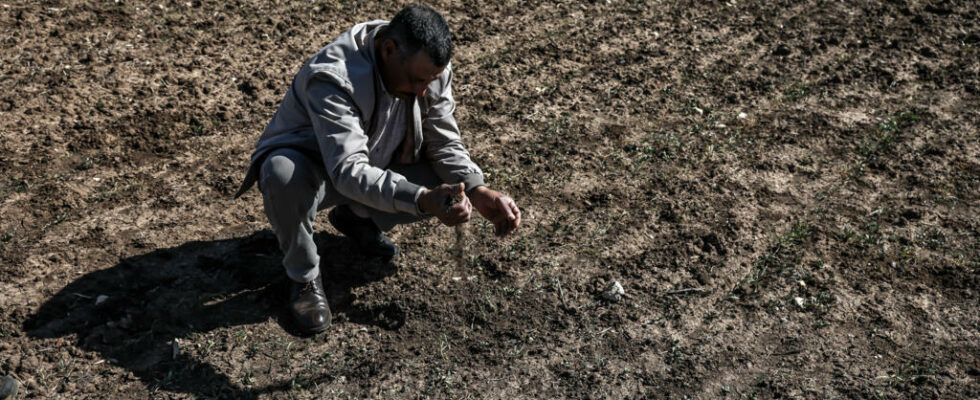This Tuesday, November 19, is a day dedicated to agriculture at COP29 in Baku, Azerbaijan. Farmers are on the front lines of the climate crisis, with disasters occurring all over the world. Some are trying to adapt, even though food systems, including livestock, are responsible for around 60% of global methane emissions.
2 mins
Karen Nekesa Samukoya, who grows maize in Kenya, came to plead her case in the aisles of the COP29says our special correspondent in Baku, Jeanne Richard. She knows to what extent climate change can have terrible consequences for agriculture.
“ Things have changed, we have droughts and floods and we don’t know when the next rains will be. In 2021, it has been particularly bad. I went to Baringo, in the north of the country, there was no more rain, no more food and the herds died. »
Turn to seeds that adapt to all climates
Karen Nekesa Samukoya runs an association that promotes sustainable agricultural practices, to try to adapt and resist: “ We try to find our traditional seeds because they adapt to all climates. And even if you don’t have water for five months, they will grow and you will still have food! With good practices, we can have good harvests. »
But to make these practices known, to teach them to farmers, what this Kenyan farmer is asking for is what all the representatives of vulnerable countries are asking at this COP: “ Finance all the way. »
Also readAgriculture: peasant seeds at the service of biodiversity
Reduce global methane emissions
And food systems, particularly livestock, are responsible for around 60% of global methane emissions. A greenhouse gas responsible for around a third of global warming. So what measures should we take to reduce these emissions? The International Fund for Agricultural Development (IFAD) has just published a guide for developing countries and farmers.
“ Developing countries and especially small farmers can benefit from measures to reduce methane emissions, explains Juan Carlos Mendosa, climate director of IFAD. While reducing emissions is commonly thought to require sacrifice, reducing methane emissions is actually a win-win strategy. »
According to IFAD’s climate director, a large part of emissions are due to livestock farts and burps. And we can reduce these emissions by improving animal health. “ By improving veterinary services for small breeders, the animals will be healthier, they will have a better protein level and therefore this will bring in money and improve the lives of breeders.believes Juan Carlos Mendosa. This is just an example, and depending on the project, one dollar invested brings in between two and eight dollars in return. »
Also readWhat is the role of methane in global warming?
